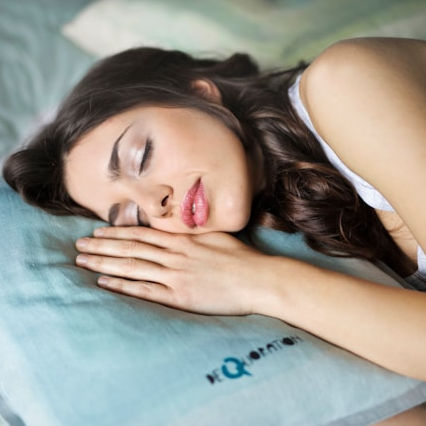
17 Jun Does Alcohol Affect Melatonin?
Yes, alcohol affects melatonin production. It disrupts the body’s natural circadian rhythm by interfering with the pineal gland’s ability to produce melatonin, a hormone crucial for regulating sleep-wake cycles. Consuming alcohol, especially in the evening, can decrease melatonin levels, leading to difficulties falling asleep and maintaining restful sleep. This disruption can result in poor sleep quality and irregular sleep patterns. Therefore, limiting alcohol intake can help maintain healthy melatonin levels and improve overall sleep quality.
In-Home Alcohol Addiction Recovery with Elite Home Detox
Elite Home Detox provides typical rehabilitation clinic services to the comfort of a patient’s home. Because each patient’s situation and demands are unique, our thorough treatment approach is personalized to the individual.
In-home alcohol addiction recovery is a modern option for today’s hectic, fast-paced lifestyles.
Table of Contents:
The Immediate Effects of Combining Alcohol and Melatonin
Combining alcohol and melatonin can lead to increased drowsiness and sedation.
Both substances have a sedative effect, which can be intensified when taken together. This combination can make you feel excessively sleepy and less alert, increasing the risk of accidents and injuries.
Mixing alcohol with melatonin can significantly enhance feelings of drowsiness, which is especially dangerous if you need to perform tasks that require total attention, such as driving. The sedative effects of both substances can impair your ability to function normally.

Potential Risks and Side Effects
There are several potential side effects when combining alcohol and melatonin. These can include dizziness, confusion, and difficulty concentrating. Additionally, the interaction between the two can increase the likelihood of experiencing hangover symptoms, such as headaches and nausea.
Long-Term Health Concerns
In addition to the potential short-term effects of combining alcohol and melatonin, there are some long-term considerations to be aware of.
- Impact on Sleep Cycles and Quality: Using alcohol and melatonin together over a long period can negatively affect your sleep cycles. Alcohol is known to disrupt REM sleep, the restorative phase of the sleep cycle, which can lead to poorer overall sleep quality. When combined with melatonin, the potential for sleep disturbances increases, making it harder for your body to establish a healthy sleep pattern.
- Possible Exacerbation of Depressive Symptoms: Chronic use of alcohol can contribute to the development of depressive symptoms. When mixed with melatonin, which can also affect mood, the risk of exacerbating depression may rise. It is important to consider these potential mental health impacts if you regularly combine these substances.
Safety Guidelines for Mixing Melatonin with Alcohol
Combining melatonin with alcohol is generally not recommended due to the potential for increased drowsiness and other side effects. However, if you find yourself in a situation where you have taken both, there are precautions you can take to minimize risks, which we will discuss further below.
If you struggle with alcohol or substance abuse, seeking professional help is significant. There are many resources available that can provide support and treatment. Your health and well-being are paramount, and professionals can offer the guidance you need to overcome substance abuse.
Recommended Precautions
If you accidentally take melatonin after drinking, monitor how you feel and avoid activities that require full alertness, such as driving or operating heavy machinery. To minimize risks:
- Wait Before Taking Melatonin: After consuming alcohol, wait several hours before taking melatonin. This approach allows your body to metabolize some of the alcohol and reduces the chances of intense sedative effects.
- Start With a Low Dose: If you decide to take melatonin after drinking, start with a low dose to lessen the combined sedative impact of alcohol and melatonin.
- Avoid Habitual Mixing: Regularly combining melatonin and alcohol can disrupt your sleep cycle and overall health. Try to avoid making this a habit.
What Should Not Be Mixed With Melatonin
Certain substances can interact negatively with melatonin, potentially leading to adverse effects. It is essential to be aware of these interactions to ensure your safety.
Substances That May Interact Negatively with Melatonin
- Caffeine: Caffeine can counteract the effects of melatonin, making it harder for the supplement to help you sleep. Therefore, when taking melatonin, caffeine should be avoided in the hours leading up to bedtime.
- Other Sedatives: Combining melatonin with other sedative medications or supplements, such as benzodiazepines or valerian root, can enhance the sedative effects and advance the risk of excessive drowsiness and impaired coordination.
- Blood Thinners: Melatonin can potentially interfere with blood thinners like warfarin, increasing the risk of bleeding. Consult with your healthcare provider if you are on blood-thinning medication and considering melatonin.
- Immunosuppressants: Melatonin can interact with immunosuppressive drugs, possibly affecting their efficacy. If you are on immunosuppressants, seek medical advice before using melatonin.
Practical Advice for Melatonin Use
Melatonin can be a helpful supplement for improving sleep quality and regulating sleep patterns. Following certain guidelines and best practices is valuable for increasing efficacy and safety.
Taking melatonin in the middle of the night, such as at 3 AM, can be useful in certain situations, but it’s important to do so carefully to avoid disrupting your sleep-wake cycle.
Here are some guidelines:
- Use Low Doses: If you wake up in the middle of the night and have trouble falling back asleep, a low dose of melatonin (0.5 to 1 mg) can help. Higher doses might make you feel groggy in the morning.
- Timing Matters: Melatonin works best when taken about 30 minutes before you plan to sleep. If you take it too late, it can interfere with your natural wake time and make it harder to wake up in the morning.
- Occasional Use: Using melatonin at 3 AM should be an occasional remedy rather than a nightly habit. Frequent late-night use can confuse your internal clock and lead to more significant sleep disturbances over time.
- Monitor Your Sleep: Pay attention to how your body reacts. If taking melatonin late at night consistently disrupts your sleep schedule or leaves you feeling groggy, it might be better to address the underlying cause of your nighttime awakenings instead.
It is important to use melatonin correctly and avoid mixing it with alcohol. Here are some tips for optimal effectiveness:
- Choose the Right Time: Take melatonin about 30 minutes to an hour before your intended bedtime. This sequence allows the hormone to signal to your body that it’s time to wind down.
- Create a Sleep-Friendly Environment: To promote better sleep, ensure your bedroom is dark, quiet, and cool. Reducing screen time before bed can also help melatonin work more effectively.
- Avoid Alcohol and Caffeine: Consuming alcohol and caffeine can interfere with melatonin’s effectiveness. Avoiding these substances is recommended, especially in the hours leading up to bedtime.
- Stick to a Routine: Maintain a consistent sleep schedule by going to bed and waking up at the same time every day. This healthy habit can help regulate your body’s internal clock and enhance the effects of melatonin.
- Monitor Dosage: Start with a low dose of melatonin, such as 0.5 to 1 mg, and adjust if necessary. Taking too much melatonin can lead to side effects like grogginess and disrupted sleep patterns.
- Consult a Healthcare Provider: If you have any health conditions or are taking other medications, consult with a healthcare provider before beginning melatonin. They can provide personalized advice and ensure there are no harmful interactions.
By following these practical guidelines and best practices, you can make the most of melatonin’s benefits for improving sleep quality without the negative effects of alcohol or other interfering substances.
Frequently Asked Questions
What Are the Risks of Taking Melatonin After Drinking Alcohol?
Taking melatonin after drinking alcohol can amplify the sedative effects of both substances, leading to increased drowsiness and impaired coordination. This heightened sedation can increase the risk of accidents and injuries. Additionally, combining melatonin and alcohol can cause dizziness, confusion, and difficulty concentrating, making it unsafe to perform activities that require alertness, such as driving.
How Does Alcohol Impact Melatonin Absorption?
Alcohol can interfere with the absorption and effectiveness of melatonin. When alcohol is consumed, it can disrupt the body’s natural sleep-wake cycle and reduce the quality of sleep. This interference may counteract the benefits of melatonin, making it less effective at promoting restful sleep. Furthermore, alcohol can alter how melatonin is metabolized in the body, potentially leading to unpredictable effects and reduced efficacy.
Can Melatonin Help with Alcohol Hangovers?
Melatonin is not typically recommended for alleviating hangover symptoms. While melatonin can help regulate sleep, it does not address the dehydration, headaches, and other physical discomforts associated with hangovers. Instead, focusing on hydration, rest, and consuming a balanced diet are more effective strategies for recovering from a hangover.
If sleep disturbances persist, it’s better to wait until the effects of alcohol have completely worn off before considering melatonin.
Final Thoughts
Mixing melatonin with alcohol can lead to increased sedation, impaired coordination, and potential health risks. Alcohol can interfere with the absorption and effectiveness of melatonin, diminishing its ability to promote restful sleep and exacerbating its side effects.
For individuals considering the combination of melatonin and alcohol, it is best to avoid mixing the two. If you have consumed alcohol, wait several hours before taking melatonin to reduce the risk of excessive drowsiness and other adverse effects.
Always start with a low dose of melatonin and consult with a healthcare provider to ensure safe use, especially if you have any underlying health conditions or are taking other medications. By being mindful of the interactions between melatonin and alcohol, you can make safer choices and better support your overall sleep health. Remember to prioritize your health and consult with a healthcare professional for personalized advice.
In-Home Alcohol Addiction Recovery with Elite Home Detox
Elite Home Detox brings the services of a traditional rehabilitation clinic to the comfort of a patient’s home. Since every patient’s circumstances and needs are different, our comprehensive treatment plan is tailored to the individual.
In-home alcohol addiction recovery is a modern solution for the busy, fast-paced lifestyles of today.
Personalized attention
Unlike a traditional addiction rehabilitation clinic, where patients meet in groups, in-home rehab means that our patients get dedicated, one-on-one attention.
Elite Home Detox provides a 24/7 onsite medical professional to monitor the patient, make changes to the treatment plan as necessary, and answer any questions that the patient, friends, or family may have. We are with our patients every step of the way to ensure a safe and healthy recovery with long-lasting results.
Convenient and private
Both inpatient and outpatient clinics require patients to travel to their destination. This is not only costly, but it also requires a significant amount of the patient’s time. In-home addiction rehabilitation works with the patient’s schedule, minimizing disruptions while maximizing results.
Some people may find group therapy beneficial. However, since addiction recovery is an intense and involved process, many patients prefer discretion while rehabilitating. That’s why Elite Home Detox brings our services directly to our patients for unmatched convenience and privacy.
Comprehensive, quality care
From genetics to social environment, many factors can contribute to a person developing an addiction to alcohol. These same factors need to be addressed during alcohol addiction rehab for a successful and lasting recovery. From detox to counseling that helps patients develop healthy coping mechanisms, Elite Home Detox offers the same services and quality of care as traditional rehab clinics.
Our team is thoroughly trained in addiction recovery, and every program is overseen by our medical director to ensure quality care.


